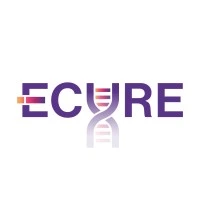
Reports Complete Response in First Infant with ECUR-506 for OTC Deficiency, iECURE
iECURE, Inc., a gene-editing company focused on developing in vivo gene insertion therapies for liver disorders, reports promising preliminary findings from the first infant dosed in the ongoing OTC-HOPE Phase 1/2 study. This study reports on the evaluation of ECUR-506, iECURE’s clinical candidate aimed at treating neonatal onset ornithine transcarbamylase (OTC) deficiency, a genetic disorder affecting the liver.
The infant, who received a single dose of ECUR-506, reports experiencing generally well-tolerated treatment, with no significant clinical safety concerns noted. However, a mild case of asymptomatic transaminitis was observed at the four-week mark, which was effectively managed with immunosuppressive therapy and resolved within four weeks. iECURE reports that the infant’s health progressed steadily following this event.
Twelve weeks following treatment, iECURE reports significant improvements. The infant was able to discontinue ammonia scavenger medications, and their daily protein intake was increased to age-appropriate levels. The protein liberalization was well tolerated, and importantly, iECURE reports that the mean ammonia levels were reduced and remained within normal limits, showing clear improvement compared to pre-treatment levels.

These early findings report a strong indication of ECUR-506’s potential to address the underlying causes of OTC deficiency, offering hope for infants and patients affected by this rare liver disorder. The reports suggest that ECUR-506 may be a game-changing therapy for this condition.
iECURE, Inc. has made significant strides in its Phase 1/2 clinical trial for ECUR-506, a gene-editing therapy aimed at treating neonatal onset OTC deficiency. The company reports preliminary results from the first infant dosed with ECUR-506, highlighting the potential of in vivo gene insertion as a transformative approach for treating severe genetic conditions like OTC deficiency.
ECUR-506 utilizes two adeno-associated virus (AAV) vectors, each carrying different payloads: one containing the ARCUS® nuclease vector targeting the well-characterized PCSK9 gene locus, and the other carrying the donor vector to insert a functional OTC gene. This gene editing strategy offers a potential path to permanent gene expression, which could alleviate the need for ongoing medical management of OTC deficiency. iECURE reports that the ARCUS nuclease was licensed from Precision BioSciences (Nasdaq: DTIL) for use in ECUR-506.
The first infant enrolled in the OTC-HOPE trial had been diagnosed with neonatal onset OTC deficiency, a severe genetic disorder that leads to hyperammonemia (elevated ammonia levels in the blood), a toxic condition that can cause brain damage or death if untreated. iECURE reports that at the time of enrollment, the infant had already experienced two hyperammonemic crises (HACs) during the first three and a half months of life, requiring dialysis and ammonia scavenger medication to stabilize ammonia levels.
At six and a half months of age, the infant received a single dose of ECUR-506 at the lowest dose (1.3 x 10^13 GC/kg), which was generally well tolerated. However, four weeks after treatment, iECURE reports that the infant developed mild asymptomatic transaminitis, a known side effect of AAV-mediated gene therapies, which was resolved through immunosuppressive therapy within four weeks.
By 12 weeks post-treatment, the infant’s ammonia scavenger medication was successfully discontinued, and protein intake was gradually increased to age-appropriate levels. iECURE reports that the infant’s mean ammonia levels remained within normal limits, with no further hyperammonemic crises. This marked a significant improvement compared to the pre-treatment period, where the infant had been on a restricted protein diet to control ammonia buildup.
Julien Baruteau, M.D., Ph.D., the principal investigator of the study, expressed excitement over these early results, noting that this was the first infant to receive an in vivo gene insertion therapy directed at the liver. Baruteau highlighted that the infant’s ability to discontinue ammonia scavengers and tolerate an age-appropriate protein intake was a positive indicator of the potential of ECUR-506 to alleviate the need for liver transplantation, a standard of care that carries significant risks for infants with OTC deficiency. iECURE reports that this could represent a major advancement in the treatment of OTC deficiency.
OTC deficiency is a rare but serious condition where the lack of functional OTC enzyme leads to the accumulation of ammonia in the blood. iECURE reports that newborns affected by this disorder face an immediate risk of seizures, brain damage, coma, and death. Standard care often involves liver transplantation in infancy, but this procedure carries its own risks, including graft failure and complications from immunosuppressive drugs.
Dr. Gabriel Cohn, iECURE’s Chief Medical Officer, emphasized that while the findings are still early, the elimination of ammonia scavenger medication and the normalization of ammonia levels reports a potential breakthrough for babies suffering from OTC deficiency. He also noted that although liver enzyme elevations like transaminitis are common in AAV gene therapy trials, the company has updated its clinical protocols to improve detection and management of such events in future participants.
The preliminary results from the first participant report positive early signs, but iECURE is still in the early stages of the clinical trial. Dosing for the first cohort continues, with a complete six-month data readout expected in the first half of 2026. iECURE reports that the company has already made strides in expanding the clinical trial, with two clinical sites now open in the United States—UCLA Mattel Children’s Hospital and Children’s Hospital of Colorado. iECURE reports that it has also received Clinical Trial Authorization in the European Union and plans to open additional sites in Spain.
The OTC-HOPE study is evaluating ECUR-506 in newborns with genetically confirmed neonatal onset OTC deficiency. The study aims to assess the safety, tolerability, pharmacokinetics, and efficacy of a single intravenous dose of ECUR-506. iECURE reports that participants are followed for six months after treatment, with the opportunity for long-term follow-up through the ECUR-LTFU study.
iECURE is hopeful that these promising early results report a path toward regulatory discussions on accelerated approval pathways and global trial expansions. The company’s CEO, Joe Truitt, emphasized the potential of gene editing to improve the standard of care for OTC deficiency and other genetic liver disorders, potentially transforming the lives of affected patients and their families.
The findings from the first participant will be presented at the 2025 American College of Medical Genetics and Genomics Annual Clinical Genetics Meeting in Los Angeles in March 2025. iECURE reports that the presentation will offer further insight into the promising progress of ECUR-506.




